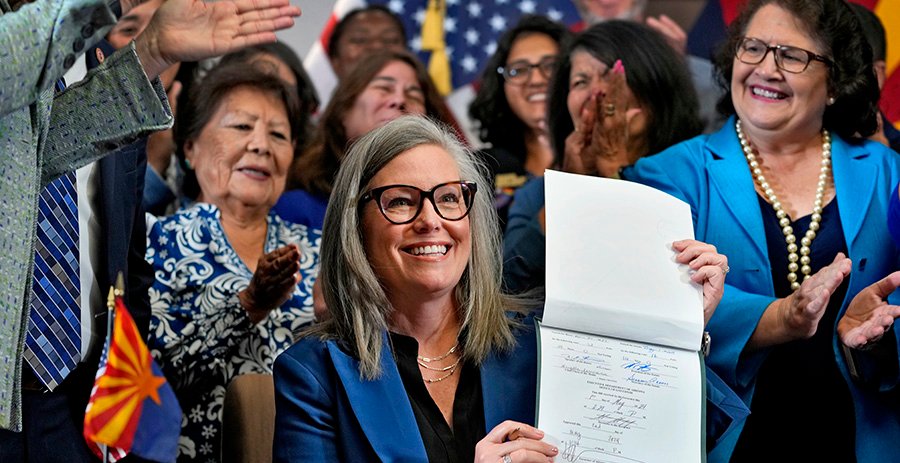1864 abortion ban
2024 in Review: Prop. 139 Passed, But Legal Turmoil Looms Ahead

In a significant shift, Arizona’s abortion law evolved dramatically throughout 2024, transitioning from a 15-week limit to a near-total prohibition, and ultimately to a constitutional right after voters approved the Arizona Abortion Access Act, also known as Proposition 139, by a decisive 61.61%. This historic vote signals the electorate’s final say on abortion rights in the state, though legal challenges loom on the horizon as the new provisions interact with existing laws.
Lauren Beall, an attorney with the ACLU, highlighted the long-standing legislative efforts to restrict abortion access in Arizona. She emphasized that despite the favorable ruling of Roe v. Wade, numerous state laws emerged aiming to limit abortion rights, resulting in a complex legal landscape encompassing over 40 regulations. “We don’t expect those people to disappear,” she stated, reflecting on the continuous challenges ahead.
Earlier in the year, confusion reigned regarding the state’s abortion law as the Arizona Supreme Court debated the validity of the 15-week statute passed in 2022 versus an 1864 law imposing a near-total ban. In April, the court ruled that the older ban took precedence, effectively nullifying the implied right to abortion under the 15-week law following the fall of Roe v. Wade.
Subsequently, Democratic lawmakers, with some Republican support, repealed the 1864 ban, allowing the 15-week law to remain. Meanwhile, activists began collecting signatures for Proposition 139, ultimately surpassing the necessary count despite facing two legal challenges aimed at obstructing its placement on the ballot.
Opponents of Prop. 139, including Arizona Right to Life, attempted to prevent the measure from reaching voters, asserting it was misleading. Conversely, advocates filed a suit against the Legislative Council over the use of the term “unborn human being” in the summary. Despite these setbacks, the proposition succeeded in the election.
Following the certification of the election results, the ACLU, Center for Reproductive Rights, and Planned Parenthood Arizona initiated a lawsuit to challenge the 15-week ban. They argue that this law contradicts the principles established by Prop. 139, which stipulates that the state “shall not enact, adopt or enforce any law” that undermines the fundamental right to abortion before fetal viability unless under compelling circumstances.
The current Arizona Attorney General, Kris Mayes, has aligned with the plaintiffs, leaving the 15-week statute undefended. Beall noted that other abortion-related laws in Arizona may soon face litigation, including measures regarding genetic abnormalities, biased consent requirements, and mandatory waiting periods.
Cathi Herrod, president of the anti-abortion group Center for Arizona Policy, criticized Proposition 139, asserting it could undermine essential regulations like informed consent and parental consent laws. She anticipates ongoing legal challenges aimed at limiting the scope of the new law.


















